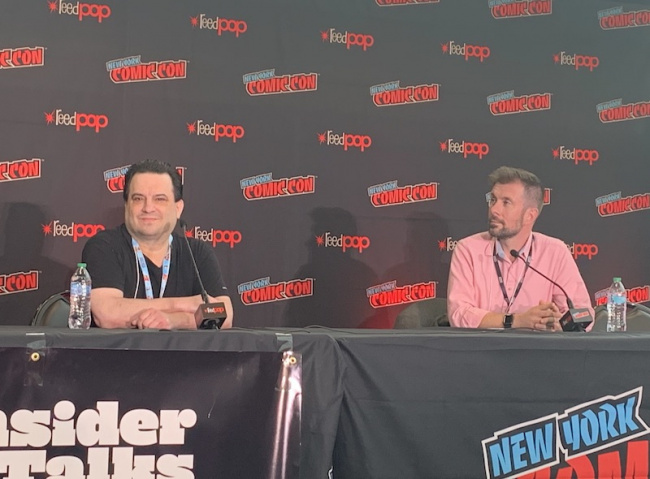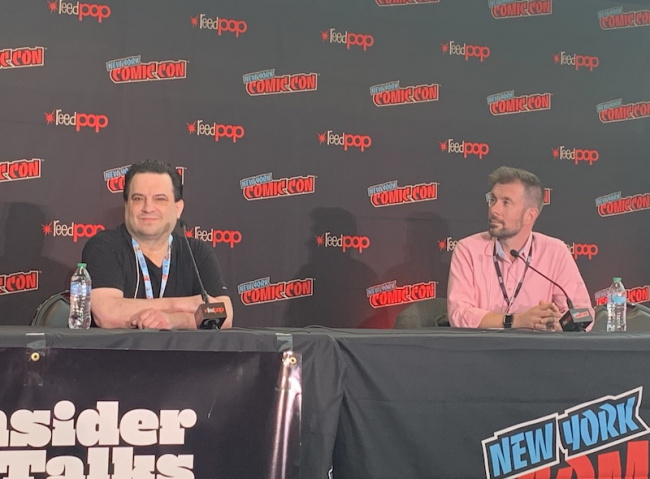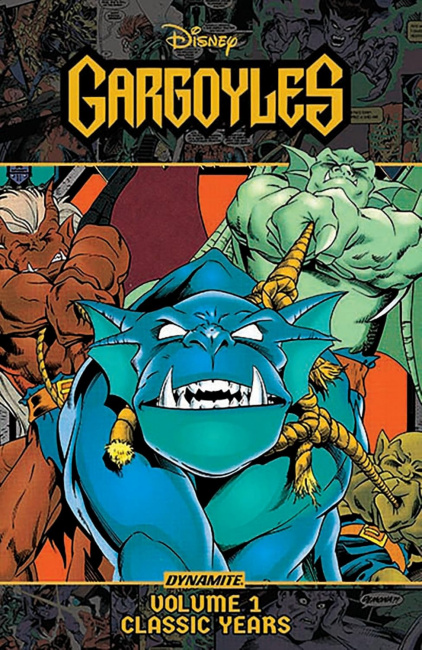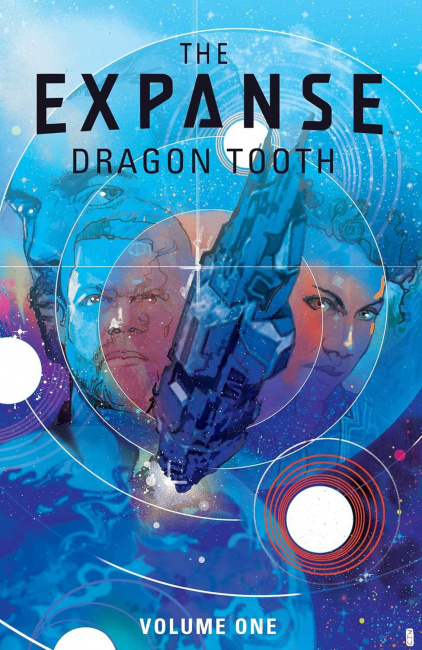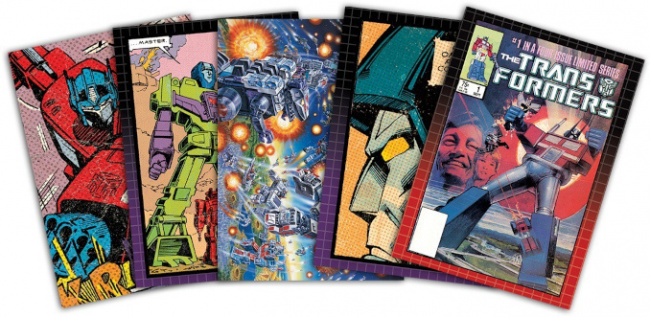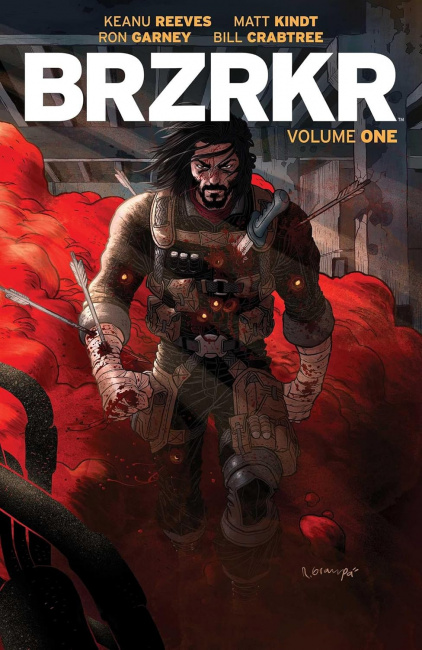At the ICv2 Insider Talks at New York Comic Con, ICv2 CEO Milton Griepp led a lively discussion with Nick Barrucci, of Dynamite Entertainment and Dynamic Forces, and Filip Sablik, formerly of Top Cow and BOOM! Studios and now one of the entrepreneurs behind the new publisher Ignition (see “Name Revealed for New Publisher Formed by ‘Scott Pilgrim’ Producer”), about selling direct to consumers (DTC) via crowfunding or live selling.
“The world has made it easier yet harder to sell direct to consumer, both at the same time,” Barrucci said. “It’s easier because there are so many platforms where you can reach an audience, where you can grow an audience, where you can cultivate that audience. It’s harder, because it’s just as easy for anybody else to do it.” In the end, he said, the key is to treat customers well. “It comes back down to the age old adage, over-deliver and under-promise,” he said. “If you under promise and over deliver, you have a better chance of succeeding than most.”
Barrucci talked about the timing of crowdfunding campaigns, saying, “The first 48 hours are about 30 to 35% of the money you’re going to take in, the last 48 hours about 30 to 35% of the money, and the time in the middle is where you get people who discover you.” Sometimes there are surprises as well: An article about Dynamite’s Kickstarter campaign to fund reprints of classic Gargoyles comics was picked up by MSN, Barrucci said, and pledges jumped by $40,000 in what was usually the lull.
Kickstarter recently started allowing publishers to continue taking orders after their campaign ends, which blunts the excitement of the final countdown somewhat. Barrucci said the best way to maximize pledges is to offer some rewards that are exclusive to the initial campaign window. “Let’s say a campaign is 28 days,” he said. “Obviously you want to continue to take orders, but make sure the people in the first 28 days get more because they deserve it.”
Crowdfunding platforms don’t come with a built-in audience, Sablik pointed out. “They’re great for growing and building audience and attention, because that’s really the way that they’re structured,” he said. “You have to have a crowd to draw a crowd.”
At BOOM! Studios, Sablik said, “there were two potential lanes of business that we thought would be additive and incremental to our existing business. One was properties that had that had passionate audiences outside of the markets that we were already in.” He cited BRZRKR, by Keanu Reeves, Matt Kindt, and Ron Garney, which turned out to be the highest-grossing Kickstarter of 2020 (see “Comics on Kickstarter Up 59% in 2020”). “Keanu Reeves has a massive worldwide audience,” Sablik said. “Most of those people are not in comic shops, and I would argue, probably quite a few of them aren’t even in bookstores.”
BOOM! also raised $1.4 million on Kickstarter to crowdfund comics based on the novels and television show The Expanse (see “Kickstarter Comics Campaigns Are Up”). “Those fans are incredibly passionate about The Expanse,” Sablik said. “What we found when we ran that campaign was that most of them had never been in a comic shop. They did not consider themselves comic shop customers, but they were open to reading a comic book.”
“The other lane was properties where we had identified really dedicated audiences that would engage deeply with collectible and super premium versions of product that wouldn’t make sense at retail, because either the price point would have to be too high, or in the case of some of these box sets, the physical space it would take up would be too large,” Sablik said.
While there may be some overlap between DTC customers and those who go to comic shops, Barrucci pointed out that DTC campaigns also allow publishers to offer more to the direct market. Dynamite’s Gargoyles Kickstarter raised $925,000, and having the money up front allowed them to bring out the books faster than they otherwise could. “The Marvel material was never collected, the Slave Labor material hadn’t been collected in like 15 years,” Barrucci said. “We were able to digitize and create these, and we will then be able to ship these to retailers one a month when they’re ready to go. If we had not done the Kickstarter, we would be releasing one of them every year to 18 months.” The Kickstarter for Transformers trading cards allowed Dynamite to create more chase cards while keeping the price at $5.99 per pack. “The money from the Kickstarter actually allowed us to create a better product for the entire audience, which will help retailers,” Barrucci said.
Sablik returned to the BRZRKR campaign, saying “the numbers in the direct market for the first issue came in three times higher than what we had projected, and we attribute that to the success of the Kickstarter.”
In addition to the money raised, the Kickstarter put BOOM! in direct contact with the 15,000 people who pledged. “The biggest thing that campaign allowed us to do was, for 18 months, we had a reason to communicate directly with those 15,000 people,” Sablik said. “And every single time before an issue came out, we would send them the digital edition, and we would say you’re going to receive your digital edition, and this is where you can find the physical editions, and here are the images of all of the variant covers, and they are only available in your local comic shop. And by the way, let us educate you on how to find a comic shop, because that is one of the biggest barriers to entry. So because we built that message repeatedly over 18 months, it’s still one of, if not BOOM!’s, highest selling comic book and one of the industry’s highest selling properties on a consistent basis.”
“I don’t think it would still be that if we hadn’t put in the legwork and built that relationship with those customers,” Sablik said. “That is the ideal. Does that happen every single time? No, but that is the intention, and when we are successful, that’s what happens.”
Source: ICv2

